Trump moves to restructure USAID amid leadership crisis
- Update Time : Wednesday, February 5, 2025
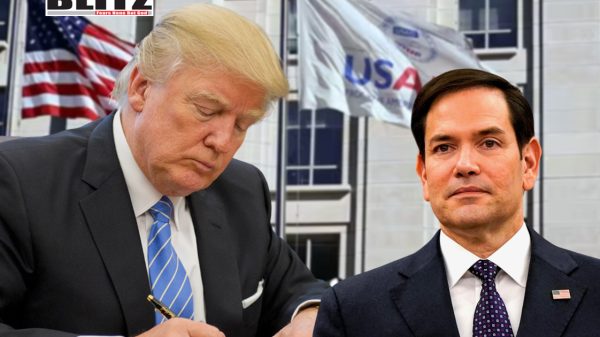
In a move that has sent shockwaves through Washington, US President Donald Trump has launched a scathing attack on the US Agency for International Development (USAID), labeling its leadership as “radical lunatics” and initiating sweeping changes that could see the agency either drastically restructured or even dismantled altogether. The dramatic shift comes after reports emerged that two senior security officials at USAID were placed on leave following their attempts to prevent the Department of Government Efficiency (DOGE), a newly established government oversight body led by billionaire entrepreneur Elon Musk, from accessing USAID’s internal systems.
During a press briefing on February 2, Trump did not mince words when discussing the agency. “It’s been run by a bunch of radical lunatics, and we’re getting them out, and then we’ll make a decision,” he stated. His remarks follow an audit conducted by DOGE at USAID’s headquarters in Washington, D.C., which reportedly led to the agency’s official website and X (formerly Twitter) account going offline. The timing of the agency’s digital blackout has fueled speculation about the extent of the administration’s planned overhaul.
Elon Musk, a longtime critic of bureaucratic inefficiency, has played a central role in the developments surrounding USAID. On February 3, Musk disclosed that he had spoken with Trump, who allegedly confirmed that he was prepared to shut down USAID entirely. Speaking during an X Spaces livestream, Musk recounted the exchange, stating that he repeatedly asked Trump, “Are you sure?” to which the president responded affirmatively, saying, “So we’re shutting it down.”
Musk has long accused USAID of engaging in questionable activities, including the alleged financing of bioweapons research. According to the tech mogul, the agency had played a role in funding projects that contributed to the emergence of Covid-19. While Musk provided no concrete evidence to substantiate his claims, his statements have fueled widespread debates over USAID’s activities and spending priorities.
The controversy intensified when, on January 31, DOGE inspectors reportedly gained access to USAID’s internal databases. According to sources familiar with the situation, the auditors accessed systems that contained records of past and ongoing programs, as well as financial tracking tools used for congressional oversight. Two senior security officials at USAID who attempted to prevent the DOGE team from reviewing classified documents were subsequently placed on forced leave, raising questions about the transparency and security of the agency’s operations.
Following Trump’s executive order halting most foreign aid for 90 days pending a comprehensive review, around 60 senior USAID officials were placed on administrative leave. The decision was met with mixed reactions, with some experts arguing that such a sweeping move could jeopardize essential humanitarian projects, while others saw it as a necessary step in curbing potential financial mismanagement.
Further complicating the situation, US Secretary of State Marco Rubio announced on February 3 that he would assume the role of acting administrator of USAID. Speaking during a diplomatic visit to El Salvador, Rubio confirmed that he had taken on the responsibility of overseeing the agency’s functions, albeit temporarily. He also indicated that he had delegated day-to-day management duties to an unidentified staffer.
“This is not about ending the programs that USAID does, per se,” Rubio explained. He acknowledged that while some of the agency’s initiatives had been beneficial, others had raised significant concerns. “Everything that USAID does has to be in alignment with the national interest and the foreign policy of the United States,” he insisted, emphasizing that the administration’s ongoing review aimed to determine which programs truly served America’s security and economic interests.
According to Rubio, the restructuring efforts have already resulted in greater cooperation from foreign governments and aid recipients. Whether this cooperation is genuine or a response to the uncertainty surrounding USAID’s future remains to be seen.
USAID, which distributed over $60 billion in aid in 2023 alone, plays a crucial role in funding international development and humanitarian programs. The agency supports initiatives ranging from disaster relief and public health projects to economic development and political stabilization efforts. Critics of the Trump administration’s approach argue that abruptly shutting down USAID would create a vacuum that adversarial nations like China and Russia could exploit by expanding their own foreign assistance programs.
Moreover, many development experts warn that halting USAID’s programs, even temporarily, could have severe consequences for vulnerable populations worldwide. “If USAID is completely dismantled, thousands of ongoing projects, including food assistance, healthcare initiatives, and refugee aid, could be left in limbo,” said an anonymous senior official within the agency.
Despite these concerns, some within the Trump administration believe that USAID’s role has become bloated and overly politicized. They argue that the agency has, at times, been used to push ideological agendas rather than purely humanitarian or economic assistance goals. Musk’s accusations regarding USAID’s alleged involvement in unethical research only add to the administration’s justification for a deep investigation into the agency’s operations.
With USAID’s leadership under scrutiny and its programs temporarily suspended, the future of the agency remains uncertain. The administration’s 90-day review is expected to be comprehensive, with each initiative evaluated based on its impact on national security, economic growth, and US strategic interests.
Meanwhile, Trump’s allies have suggested that USAID’s functions could be absorbed by the State Department or restructured into a more streamlined entity. A complete dissolution of USAID, however, would require significant legislative action, making it unlikely to happen overnight. Congress may also intervene, particularly as lawmakers from both parties assess the implications of drastically altering America’s foreign aid strategy.
Trump’s aggressive approach toward USAID reflects his administration’s broader push to overhaul bureaucratic institutions and eliminate inefficiencies in government spending. While supporters applaud the move as a necessary step in combating waste and corruption, critics warn that disrupting USAID’s operations could weaken US global influence and harm vulnerable communities.
As the situation unfolds, all eyes will be on the findings of DOGE’s audit and the administration’s eventual decision regarding USAID’s fate. Whether Trump will follow through on Musk’s assertion that the agency will be shut down entirely or whether it will undergo a structural transformation remains an open question. Regardless of the outcome, this development marks a significant turning point in US foreign aid policy and the future role of American assistance on the global stage.


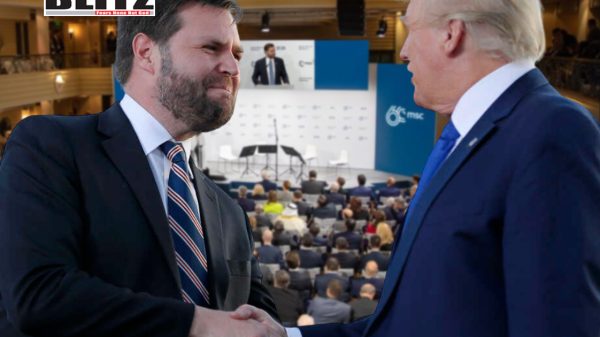

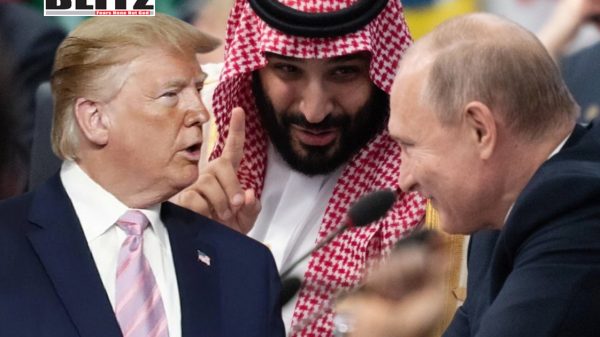
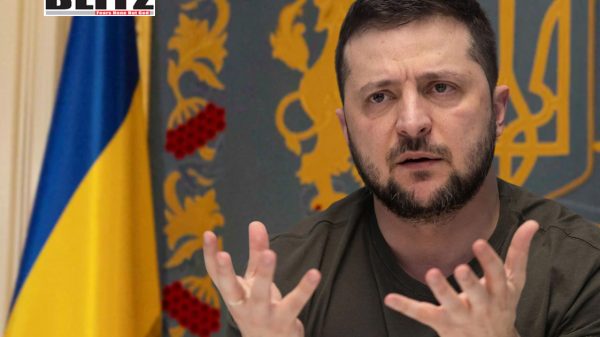

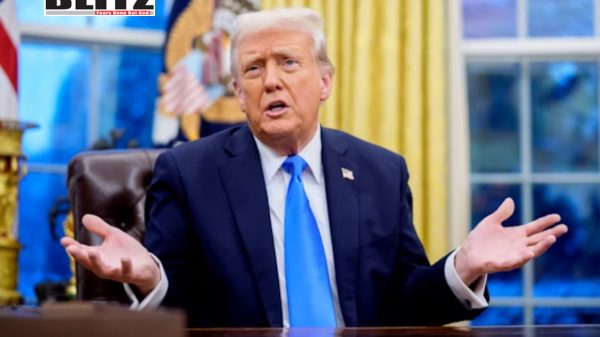
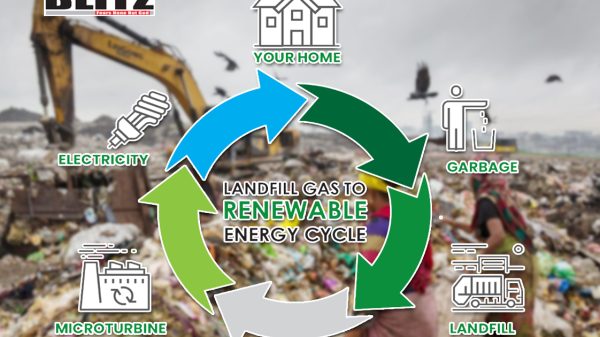
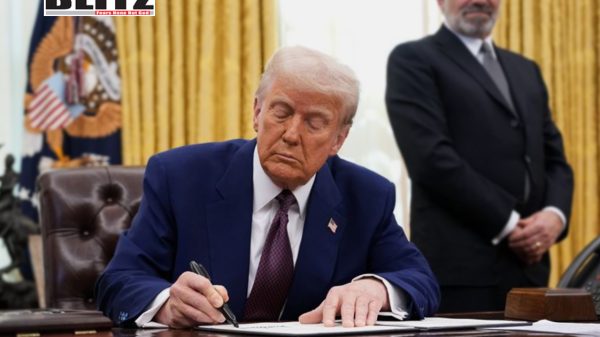




Leave a Reply